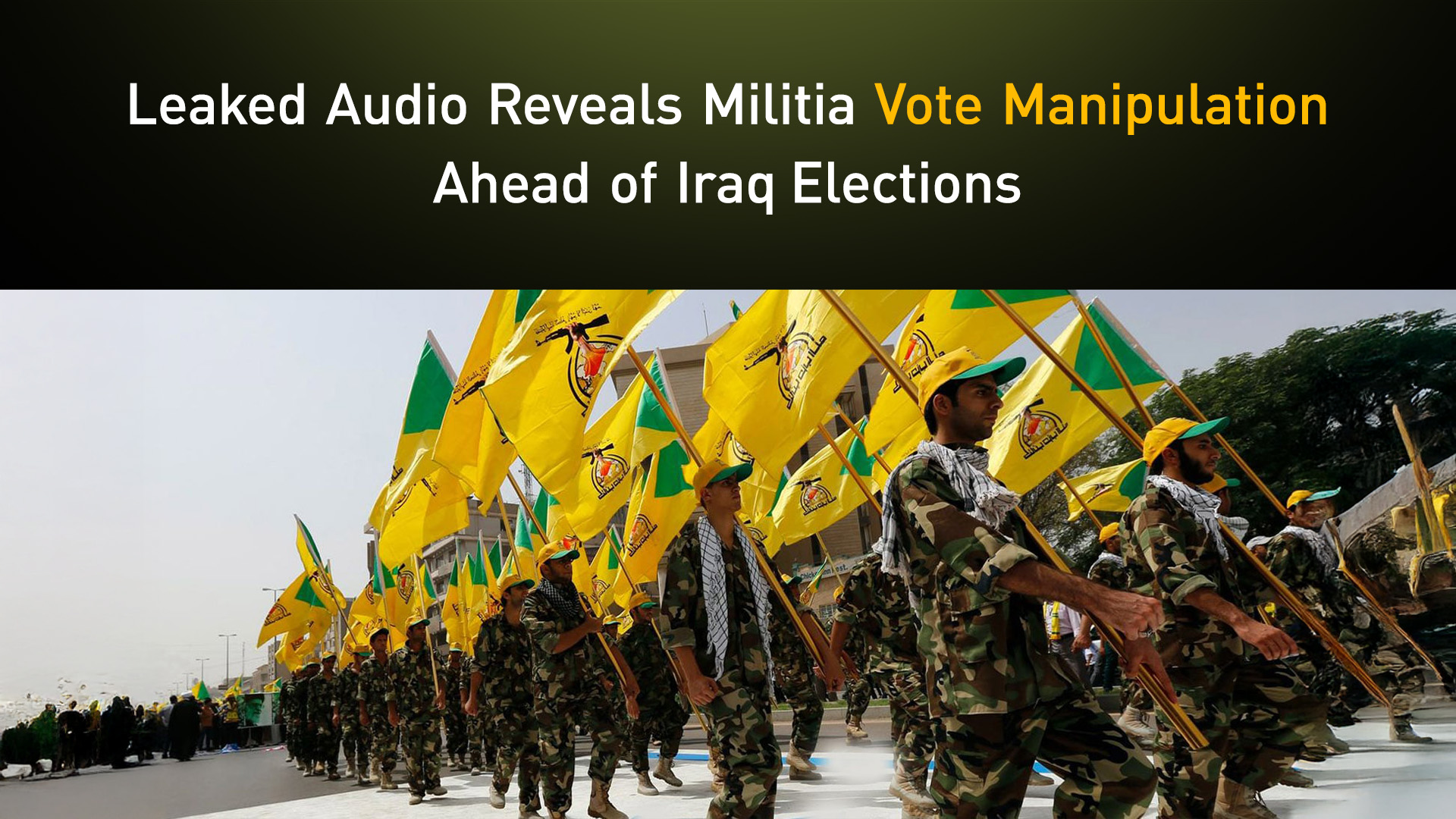Leaked Audio Reveals Militia Vote Manipulation Ahead of Iraq Elections
Leaked audio reveals Iran-backed militias and political elites coercing voters and buying votes ahead of Iraq’s elections. Militants threaten fighters, while a Baghdad professor offers academic favors for ballots—deepening fears of systemic electoral corruption.

By Kamaran Aziz
ERBIL (Kurdistan24) – In a fresh wave of scandal that has stirred widespread outrage across Iraq, a series of leaked audio recordings circulating on social media has exposed ongoing use of coercion, bribery, and institutional influence by loyalist militias and political factions to manipulate the upcoming parliamentary elections.
The leaks, which involve both armed group leaders and university officials tied to powerful political blocs, reveal systematic efforts to buy votes and intimidate citizens into compliance, a recurring phenomenon that continues to mar Iraq’s fragile democratic process.
Weaponizing Influence: Armed Groups Target Voter Data
In one of the most revealing audio leaks, Haidar Finjan, a commander in Asaib Ahl al-Haq (AAH) – the Iran-backed militia led by Qais al-Khazali – can be heard threatening fighters under his command to immediately update their voter registration data or face dismissal and the loss of salaries.
The recording, which has spread widely across digital platforms, captures a-Finja setting a five-day deadline for compliance. He directs unit leaders to submit lists of their fighters’ names, along with copies of updated voter forms and family ration cards, to ensure complete control over the voting behavior of their ranks.
“All the families of the fighters are also obliged to vote for Asaib Ahl al-Haq’s candidates,” al-Finja declares in the recording, leaving little doubt about the coercive nature of the campaign.
As reported by the Washington Institute, Qais al-Khazali, who recently praised his role in the 2007 Karbala massacre of five U.S. soldiers, continues to wield considerable influence over Iraq’s political and security institutions. The leak confirms that the same militias that once operated outside the law are now leveraging official structures for electoral control.
Academic Corruption: Vote-Buying in Iraqi Universities
Another leaked recording implicates a university professor at Al-Farahidi Private University in Baghdad in a vote-buying scheme targeting students. The professor, Ahmed Majid, is heard offering academic favors and financial incentives in exchange for votes for Mohsen Mandalawi, the Deputy Speaker of the Iraqi Parliament and a key figure within the Coordination Framework, a Shiite political alliance heavily influenced by pro-Iran militias.
In the recording, Majid promises to “improve grades, waive tuition fees, and provide personal support” to students and their families who agree to vote for Mandalawi. He further requests the collection of voter cards and specifies a deadline for students to submit them to Mandalawi’s office, located inside the university itself.
“This is not just about votes,” Majid reportedly says. “We’ll take care of your future.”
Such blatant manipulation inside educational institutions underscores the breadth of electoral corruption. It also raises serious concerns about the independence of Iraq’s academic sector, particularly given that the university is owned by Mandalawi himself.
Systemic Corruption and Electoral Decay
The leaked recordings offer a grim portrait of Iraq’s electoral landscape, where armed groups and political elites continue to dominate the democratic process through intimidation, patronage, and institutional subversion.
While each election cycle renews calls for reform and electoral integrity, the recurrence of such practices has fostered widespread public cynicism. Observers argue that without robust legal oversight and genuine accountability, Iraq’s elections risk becoming mere exercises in legitimizing entrenched power rather than an attempt to bring about a mechanism for democratic change.
Despite promises of reform by the current government in Baghdad, the close ties to militia leaders like Qais al-Khazali have only deepened fears that electoral manipulation will remain a structural feature of Iraq’s governance.
As Iraq moves toward yet another parliamentary vote, these revelations have struck a nerve, particularly among young Iraqis and civil society activists demanding transparency, justice, and an end to political thuggery cloaked in the garb of legitimacy.
The growing exposure of such misconduct may not yet yield systemic change, but it is reshaping the narrative of what it means to vote in Iraq, one audio leak at a time.
